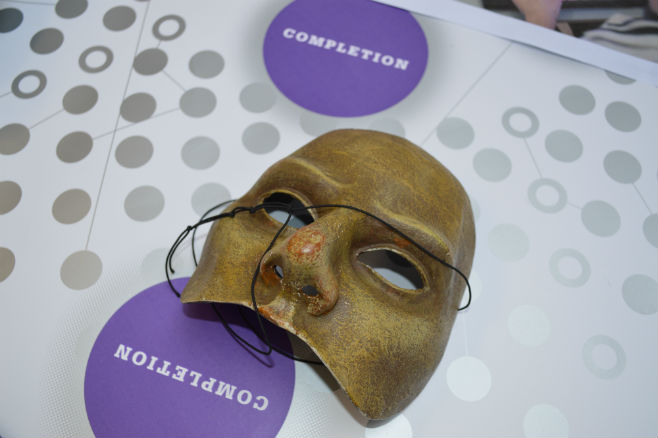Sharing the Stage: the experiment continues

After much anticipation, I finally met the Sharing the Stage cohort at the first learning community meeting last week. I’m new in post at the Foundation and have enjoyed getting to know the projects selected at phase two to develop productions out of their cutting-edge practice in participatory performing arts. It was a real pleasure to meet the practitioners behind these inspirational projects. I was drawn to this role for a number of reasons, one of which is the experimental approach to supporting practice through a learning community, to bridge the gap between practice and policy.
We began the day with introductions and warm up activities to build relationships, and get ready for our four meetings this year. From my past experience in family learning, I know that participation is an intuitive and playful language that deeply resonates with children. However, convincing young people and adults to have that same sense of play is a different matter. I was instantly reminded of the complexities of participatory practice when we were faced with an invitation to participate ourselves. It is a big ask that we make of our participants and audiences. It takes real courage and a willingness to risk revealing a part of your inner self in a creative process, all with people who are potentially strangers. It takes trust to commit to a collaborative process and agree to share a co-curated end product before you even know what it is yourself.
I was instantly reminded of the complexities of participatory practice when we were faced with an invitation to participate ourselves. It takes real courage and a willingness to risk revealing a part of your inner self in a creative process, all with people who are potentially strangers. It takes trust to commit to a collaborative process and agree to share a co-curated end product before you even know what it is yourself.
The projects have all identified communities of need that are seldom heard in the mainstream. People who are excluded from society on the grounds of disability, age, the neighbourhood they live in, recovery from addiction and contact with the criminal justice system. The projects are exploring how arts, social and health sectors can collaborate to explore the full potential of the instrumental value of the arts.
The learning community’s task at our first meeting was to set the agenda for the rest of the year. We retraced the journey the cohort had been on so far, reflecting on moments of making discoveries, both positive and negative, that were fundamental to the development of their projects. From a varied and fascinating discussion, the emerging themes were demonstrating value through the arts, working with social partners and exploring the necessary conditions to mainstream participatory performing arts.
The format we intend to pilot for the next three meetings will be a project support group in the mornings, followed by policy and practice seminars in the afternoons with invited guest speakers. A wider group of practitioners from participatory arts projects funded by the Esmée Fairbairn Foundation and the Paul Hamlyn Foundation will also be joining these seminars.
Look out for the next update in June…
